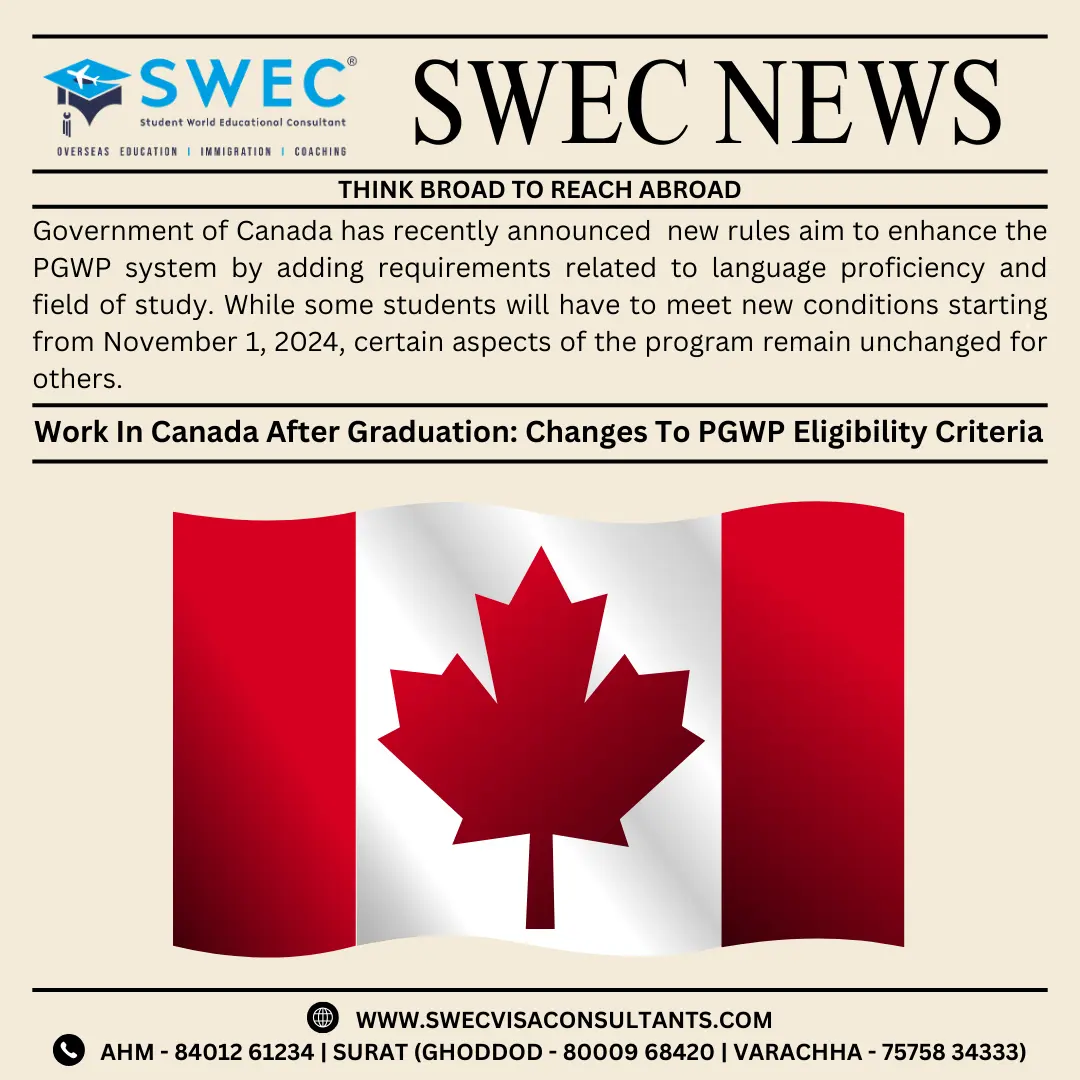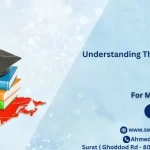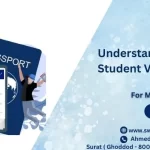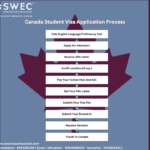The Government of Canada has recently announced changes to the Post-Graduation Work Permit (PGWP) eligibility rules. These changes are important for students planning to work in Canada after finishing their studies. Let’s break down these updates to understand how they impact you.
Overview of Changes to PGWP Eligibility
The new rules aim to enhance the PGWP system by adding requirements related to language proficiency and field of study. While some students will have to meet new conditions starting from November 1, 2024, certain aspects of the program remain unchanged for others.
What Hasn’t Changed?
Despite the recent changes, several key elements of the PGWP eligibility criteria remain the same. Here’s what continues:
- General Eligibility Rules
To qualify for a PGWP, students must still fulfill the basic eligibility requirements. These include:- Completing a study program at a designated learning institution (DLI) that is eligible for the PGWP.
- Meeting the residency or physical location requirements (even after November 1, 2024).
- Applications Before November 1, 2024
If you apply for a PGWP before November 1, 2024, you only need to meet the current eligibility criteria, not the new ones. - PGWP Eligible Flight Schools
Graduates from PGWP-eligible flight schools also only need to meet the current rules, regardless of when they apply—even after the new rules take effect.
New Eligibility Requirements After November 1, 2024
For students applying for a PGWP on or after November 1, 2024, new rules will apply. Here’s a breakdown of the major changes:
- Language Requirements
From November 1, 2024, applicants must prove their proficiency in either English or French by providing language test results. Your language skills will be assessed using the following benchmarks:- For English: Canadian Language Benchmarks (CLB)
- For French: Niveaux de compétence linguistique canadien (NCLC)
- To qualify, you must show your ability to:
- Read
- Write
- Listen
- Speak
- Proof of Language Ability
You must submit language test results that are no older than two years from the time you apply. Acceptable tests include:
| English Tests | French Tests |
| CELPIP: Canadian English Language Proficiency Index Program (General) | TEF Canada: Test d’évaluation de français |
| IELTS: International English Language Testing System (General Training) | TCF Canada: Test de connaissance du français |
| PTE Core: Pearson Test of English (Core) |
Field of Study Requirements
Another significant change concerns the field of study. If your study program has a field of study requirement, you must graduate from a program related to jobs in long-term labor shortages. These fields are divided into five major categories:
- Agriculture and Agri-Food
- Healthcare
- Science, Technology, Engineering, and Mathematics (STEM)
- Trades
- Transport
These fields are critical for Canada’s economy, and students graduating in these areas will have an easier time qualifying for the PGWP.
What Should You Do Now?
If you’re planning to apply for a PGWP, it’s crucial to understand whether these changes affect you. Here’s what you need to consider:
- If you apply before November 1, 2024, the current eligibility criteria apply to you, meaning no need for proof of language ability or specific field of study.
- If you apply after November 1, 2024, make sure you meet the new language and field of study requirements.
For more personalized advice on PGWP applications and how these changes may impact your immigration plans, consult with experts like SWEC Visa, who specialize in helping students navigate Canada’s immigration pathways.
These updates to the PGWP eligibility criteria reflect Canada’s commitment to ensuring that international graduates contribute to sectors with high demand, helping to fill gaps in the labor market. Preparing for these changes in advance will help students stay on track to work and live in Canada after their studies.
Conclusion
These updates to the PGWP eligibility criteria reflect Canada’s commitment to ensuring that international graduates contribute to sectors with high demand, helping to fill gaps in the labor market. Preparing for these changes in advance will help students stay on track to work and live in Canada after their studies.
For more personalized advice on PGWP applications and how these changes may impact your immigration plans, consult with experts like SWEC Visa, who specialize in helping students navigate Canada’s immigration pathways.
FAQs on Changes to PGWP Eligibility Criteria
Q1. What is the Post-Graduation Work Permit (PGWP)?
Ans1. The PGWP allows international students who have completed a study program at a designated learning institution (DLI) in Canada to work in Canada after graduation for a period that corresponds to the length of their program, up to a maximum of three years.
Q2. What changes have been made to PGWP eligibility requirements?
Ans2. Starting November 1, 2024, new eligibility requirements will be in place. These include mandatory language proficiency tests and specific field of study requirements for programs linked to jobs in long-term labor shortages. However, students who apply before this date will continue to follow the current criteria.
Q3. What has remained the same for PGWP applicants?
Ans3. Some aspects of PGWP eligibility remain unchanged. Students must still complete their study program at a designated learning institution and meet general and physical location requirements. If you apply before November 1, 2024, the existing eligibility rules apply.
Q4. Do the new PGWP rules apply to flight school graduates?
Ans4. No, graduates from PGWP-eligible flight schools will continue to follow the current eligibility rules, even if they apply after November 1, 2024.
Q5. What are the new language requirements for PGWP eligibility?
Ans5. After November 1, 2024, PGWP applicants must submit language test results to demonstrate their proficiency in either English or French. Accepted tests include CELPIP, IELTS (for English), and TEF Canada, TCF Canada (for French). The test results must be less than two years old at the time of application.
Q6. What language tests are accepted for PGWP applications?
Ans6. For English, Canada accepts the CELPIP-General test, IELTS General Training, and PTE Core. For French, accepted tests include TEF Canada and TCF Canada.
Q7. What are the field of study requirements for PGWP eligibility?
Ans7. If your program has a field of study requirement, it must be linked to jobs experiencing long-term labor shortages. The eligible fields include agriculture and agri-food, healthcare, science, technology, engineering, and mathematics (STEM), trades, and transport.
Q8. How do I know if the new PGWP rules affect me?
Ans8. If you apply for a PGWP before November 1, 2024, the new rules do not affect you, and you will follow the current eligibility criteria. If you plan to apply after this date, make sure you meet the new language proficiency and field of study requirements.
Q9. What should I do to prepare for these PGWP changes?
Ans9. If you are applying after November 1, 2024, ensure that you have valid language test results and that your field of study aligns with Canada’s labor needs. For more specific guidance, consult experts like SWEC Visa to help you navigate the process smoothly.
Q10. Are these changes applicable to all study programs?
Ans10. Not all programs are affected by the field of study requirements. However, those studying in fields experiencing long-term labor shortages—like agriculture, healthcare, STEM, trades, and transport—must ensure their program aligns with Canada’s labor market needs.





